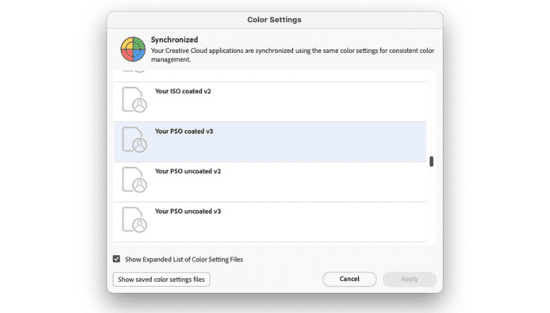A New Era of Sustainability with Kornit Atlas MAX POLY

Kornit Digital shares how the Kornit Atlas MAX POLY responds to various sustainability challenges that are usually experienced with conventional decoration techniques.
In today's world, sustainability is not just a buzzword, it's a necessity. As businesses across the globe strive to minimize their environmental impact, the textile industry is no exception. The question is, can high-quality printing be achieved without compromising on sustainability? The answer is a resounding yes thanks to the Atlas MAX POLY. This single-step digital printing solution for polyester decoration combines top-notch quality with unrivaled sustainability.
Let’s explore how the Kornit Atlas MAX POLY responds to the numerous sustainability challenges often faced by conventional decoration techniques.
Waste Reduction: A Step Towards a Greener Future
Traditional decoration methods for printing on polyester, such as screen printing, sublimation, and Direct-to-Film, are often associated with significant waste. Sublimation and Direct-to-Film, for instance, result in plastic waste, while screen printing requires high-water consumption and the usage of additional materials like screens and blockers, all contributing to environmental degradation.
The Atlas MAX POLY, however, turns the tables on this issue. By leveraging state-of-the-art digital printing technology which doesn’t require any pre-treatment, it eliminates the need for these materials, resulting in notable waste reduction. This shift towards a more resource-efficient process not only contributes to a greener future but also reduces operational costs, creating a win-win scenario for businesses and the environment alike.
Embracing the Waterless Factory Concept
Water consumption is a glaring issue associated with traditional printing methods. It exacerbates the increasing problem of water scarcity and adds to environmental pollution. The Atlas MAX POLY, however, champions the concept of a "waterless factory”, requiring minimal water for the printing process. This revolutionary water-saving solution enables businesses to align with global sustainability goals and make major strides towards conserving this invaluable resource.
Energy Efficiency & Greenhouse Gas (GHG) Emissions Reduction
The Atlas MAX POLY isn't just about waste reduction and water conservation; it's also about energy and greenhouse gas efficiency. Designed with sustainability at its core, it consumes considerably less energy compared to screen printing. This not only translates into substantial cost savings but also contributes to a more sustainable production process.
Moreover, in the sustainability sphere, greenhouse gas (GHG) emissions are a critical consideration. Here again, the Atlas MAX POLY outperforms traditional screen printing with a remarkable reduction of GHG emission.
By choosing the Atlas MAX POLY, businesses can significantly lower their carbon footprint, aligning with global efforts to mitigate climate change.

Producing Green Chemistry & Designing Safer Products
Kornit Digital applies the principles of green chemistry across the lifecycle of its inks, making them more eco-friendly, reducing hazardous chemicals, improving their recyclability and reusability, and creating more sustainable ink products. As such, The Atlas MAX POLY ink products are ECO PASSPORT, GOTS and ZDHC certified. In addition, the Atlas MAX POLY is CPSIA certified and received the bluesign® System Partner recognition for meeting the highest standard in chemical safety. These certifications provide customers with certainty that their products meet the standard for human health, safety, and ecologically responsible textile manufacturing.
The Clear Advantage of the Atlas MAX POLY
The Atlas MAX POLY has clear advantages over traditional decoration methods when it comes to sustainability. By integrating the Atlas MAX POLY into their operations, businesses can embrace a more sustainable approach to Sprotswear decoration. Its waste reduction, water-saving, energy-efficient, and low GHG emissions features, as well as its numerous sustainability regulations make it an ideal choice for those looking to minimize their environmental impact while maintaining high-quality printing results.
In conclusion, the Kornit Atlas MAX POLY is more than just a digital printing solution for polyester; it's a testament to how technology can revolutionize industries while upholding sustainability. As we navigate towards a greener future, the Atlas MAX POLY offers a new quality standard for high-volume, on-demand, sustainable direct-to-garment polyester decoration. It serves as a beacon of progress, demonstrating that quality and sustainability can indeed go hand in hand.
Visit Kornit Digital on stand 12-A10 at Sportswear Pro 2024, taking place from 19th – 22nd March 2024. Sportswear Pro will showcase the very latest technologies and solutions for on-demand and customised sportswear production. From sample design and automated digital workflows, to innovative materials and integrated wearable technologies, the exhibition and visionary trend forum will present sustainable, faster and leaner production solutions to sports and activewear brands and manufacturers. Register here and use code SWPJ410.
Topics
Interested in joining our community?
Enquire today about joining your local FESPA Association or FESPA Direct
Recent news
.png?width=550)
What visitors of FESPA Global Print Expo 2024 have to say!
FESPA Global Print Expo 2024 visitors tell us why they love to attend the leading European print and signage exhibition. With thousands of visitors coming from over 120 global countries all to discover the latest technologies and innovations from exhibitors in the print, signage, personalisation and athleisurewear markets.

How PDFs implement ICC colour management
Paul Sherfield provides a user overview of how PDFs implement ICC colour management when creating and processing these files.

Free pre-registration now open for FESPA Mexico 2024
FESPA Mexico, the leading event for printing and graphics in the country will return for its 16th exhibition in Mexico City with a larger presence.
.png?width=550)
Why you should exhibit at Personalisation Experience 2025!
FESPA’s Personalisation Experience is focused on demonstrating the art of print personalisation in the form of thought lead conferences, an interactive exhibition, and an experiential showcase of possibilities.